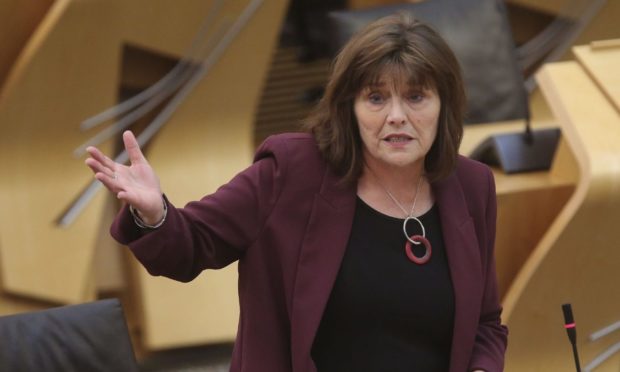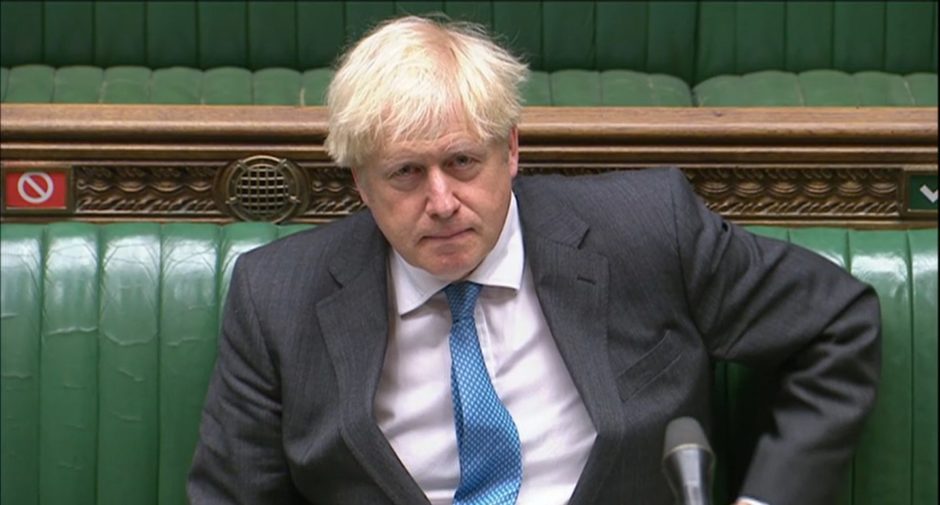Jeane Freeman has signalled Scotland will not adopt Boris Johnson’s £10,000 self-isolating fines warning the hefty penalties would harm poorer people.
The Health Secretary said the prime minister’s large fines proposal was “under discussion” but indicated that the Scottish Government would take a different approach.
In a series of BBC interviews, Ms Freeman confirmed further Scottish lockdown restrictions were imminent and said the Scottish Government was still seeking a Cobra meeting to discuss the escalating situation with Mr Johnson.
Ms Freeman said the Scottish Government would make its own decisions “very shortly” whether or not a Cobra meeting was held and warned there had been a “significant and worrying” rise in cases despite the restrictions imposed in the west.
Ms Freeman was speaking as Scottish Government statistics showed there was an increase of 245 positive Covid cases in the last 24 hours. While no new deaths were recorded, the figures showed the number of positive cases rose by 545 over the weekend, bringing the Scottish total for the pandemic to 24,371.
At the weekend it was revealed the prime minister will introduce the new fines regime in England from September 28. A new legal duty will require people to self-isolate if they have a positive coronavirus test or are contact traced. Failure to do so could lead to punitive fines of up to £10,000 in the worst cases.
But Ms Freeman told the BBC’s Politics Scotland programme the policy risked “punishing” those with financial difficulties.
We need to understand very many people are in low-paid jobs, with fragile contracts, sometimes in really difficult circumstances, so we need to win people to this fight with us. Simply imposing fines if they don’t won’t be sufficient.”
Health Secretary Jeane Freeman
“I think what you need to do is look at what are the obstacles in somebody’s way who wants to self-isolate, wants to do the right thing but may have difficulties in doing so,” she said.
“One of those will be financial difficulties, so there needs to be an extension to ensure that we can offer financial support before you start talking about punishing people for not doing something that they want to do.”
In an earlier BBC interview on Breakfast on Sunday, the Health Secretary said: “We need to understand very many people are in low-paid jobs, with fragile contracts, sometimes in really difficult circumstances, so we need to win people to this fight with us.
“Simply imposing fines if they don’t won’t be sufficient. Those are big numbers, which for many people will be completely beyond their capabilities.”
The Health Secretary did, however, say she welcomed Mr Johnson’s plan to give £500 to those on low incomes to help them self-isolate should they have to.
The UK Government scheme will result in Barnett Consequentials for the Scottish Government which would help fund a similar scheme north of the border should Ms Freeman choose to follow suit.
Ms Freeman said First Minister Nicola Sturgeon had hoped to have a Cobra meeting with the four nations this weekend to discuss measures “to see if we could reach a shared view”, but that the Prime Minister was still considering the request.
An imminent decision on tightening restrictions
When asked when the decision on extra measures may be made, Ms Freeman replied: “We certainly will have an announcement very shortly. Not necessarily today, but definitely by the early part of next week.”
The Health Secretary said the Scottish Government was trying to “avoid” a full lockdown, but additional restrictions were being considered to keep schools open and protect the vulnerable
She added that despite the recent measures introduced in Glasgow, Renfrewshire, Dunbartonshire and Lanarkshire, there was still a “significant and worrying rise in cases”.
The restrictions on household gatherings in those areas had “blunted” the impact of the virus, but that was “not good enough”.
The measures in the west had meant the increase in cases was not as dramatic as it might have been and there was not yet community transmission.
But the number of cases was not coming down in the way it had done during the Aberdeen local lockdown and the restrictions imposed on Coupar Angus factory workers.
Ms Freeman said community transmission was when the spread of the virus could not be controlled by testing and contact tracing.
She added: “At the moment our test and protect system is containing the transmission but we are not bringing it down between households so that is what we need to look at very quickly to see what more we need to do.”

